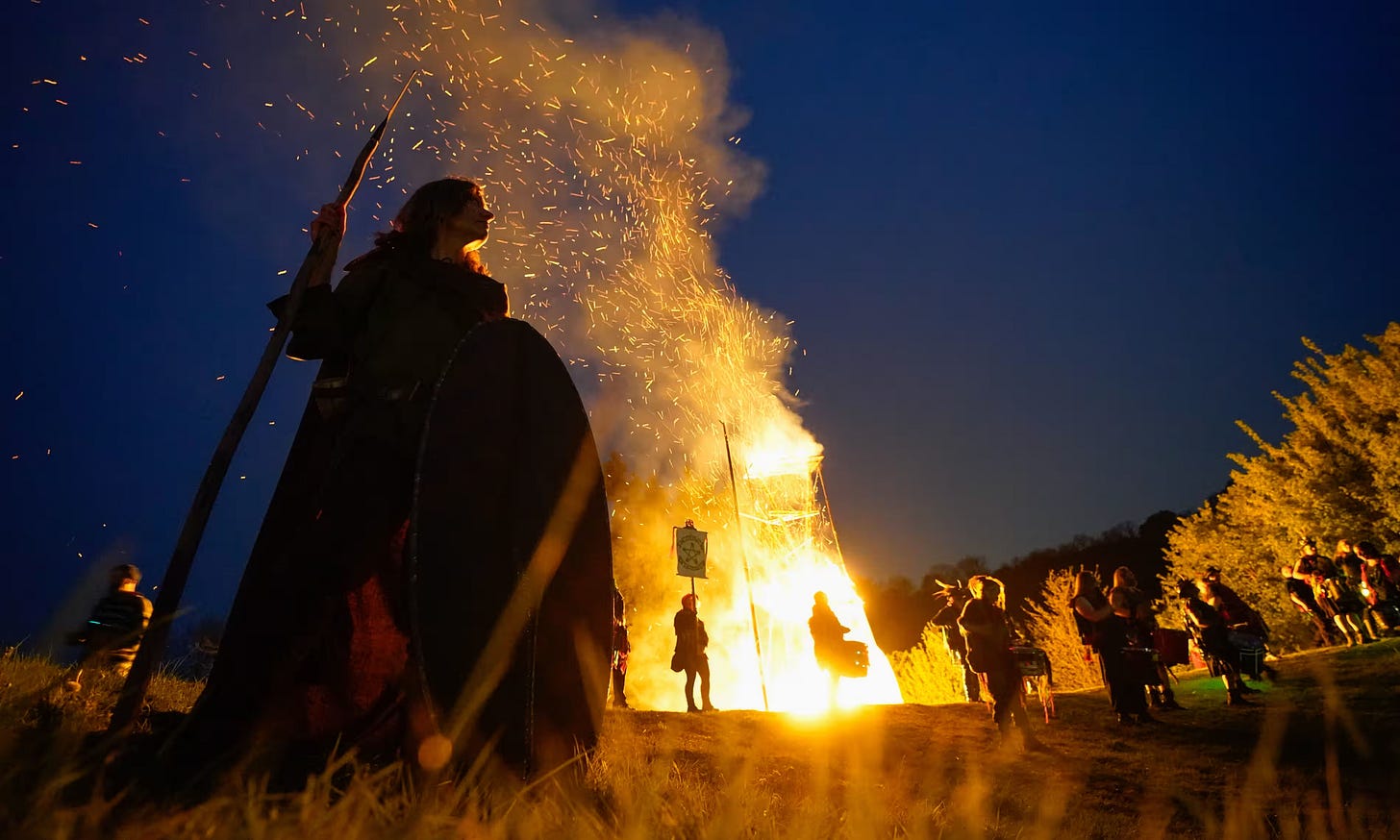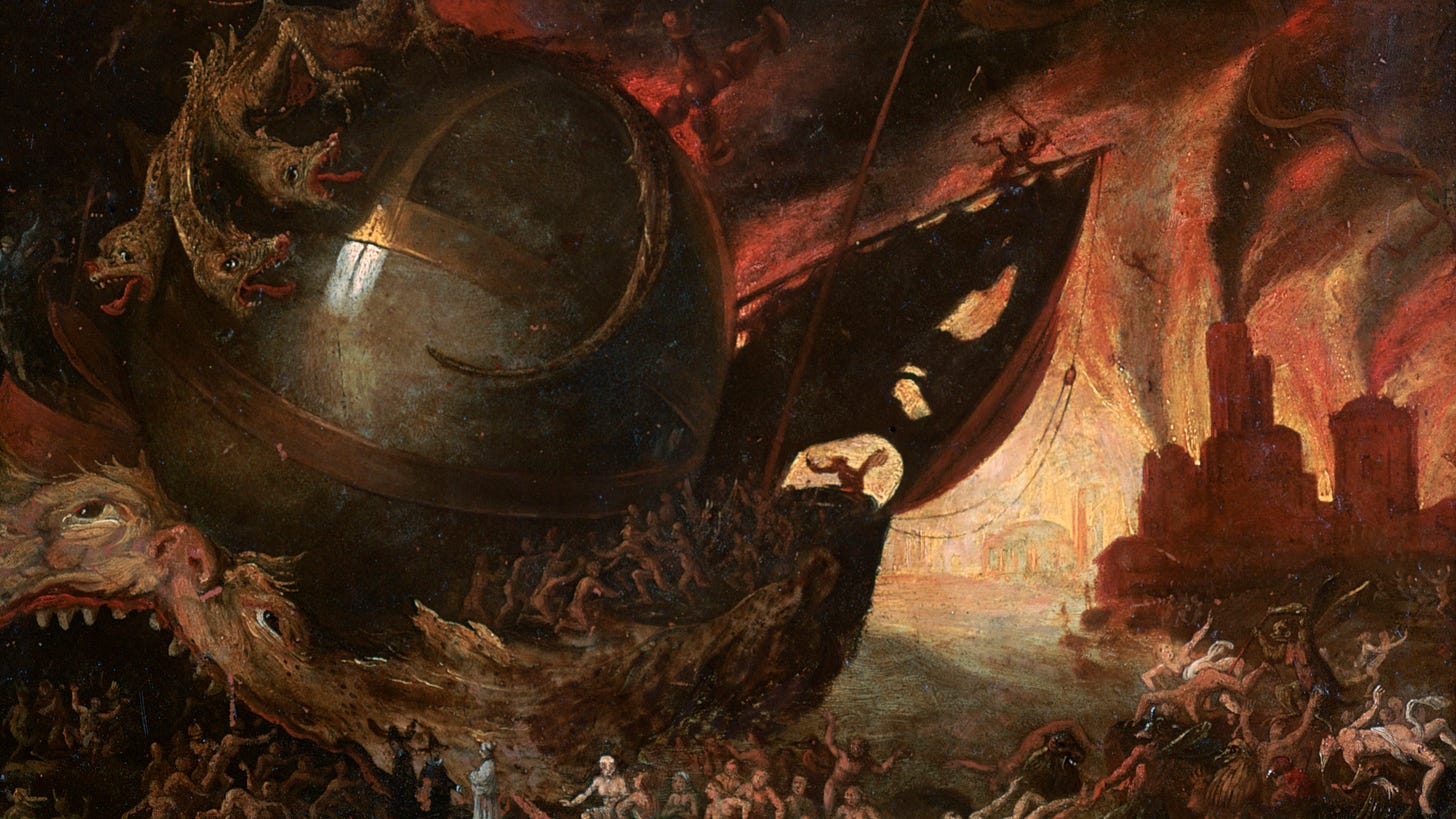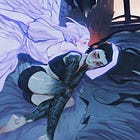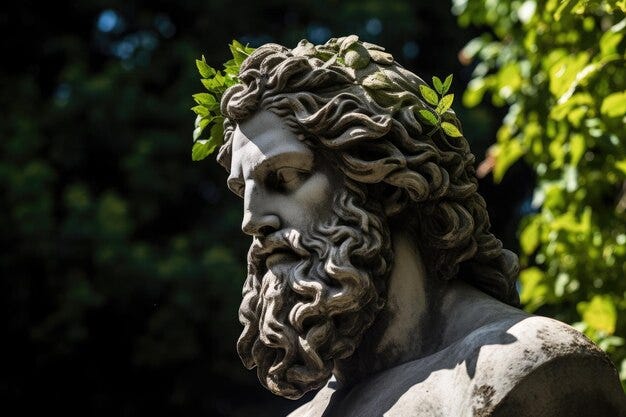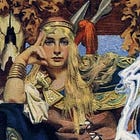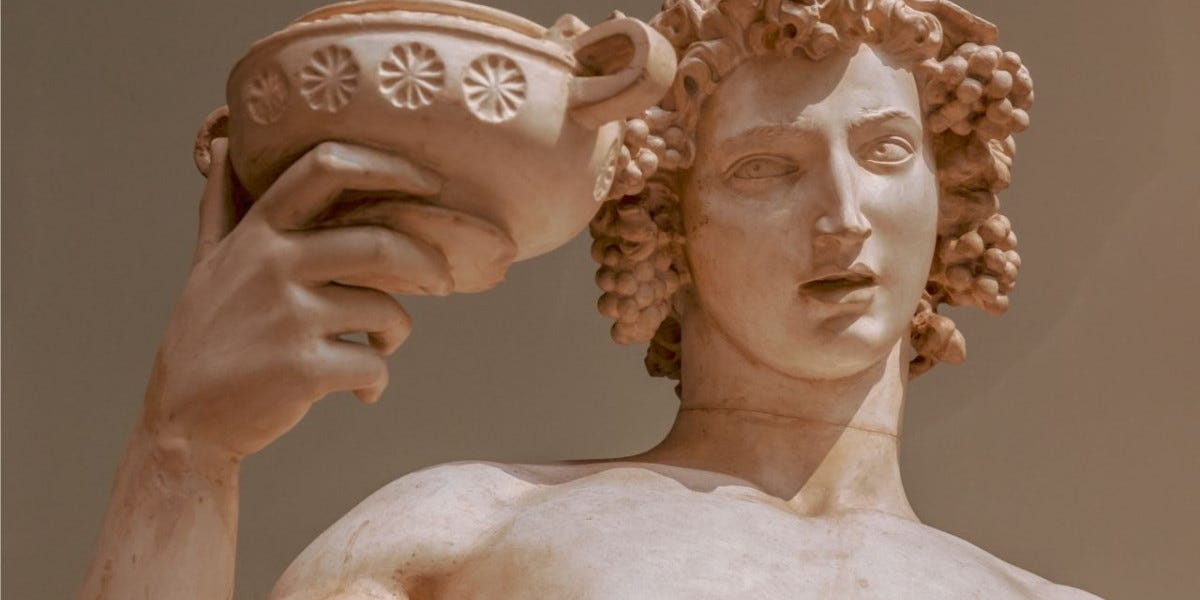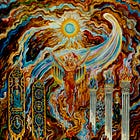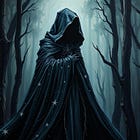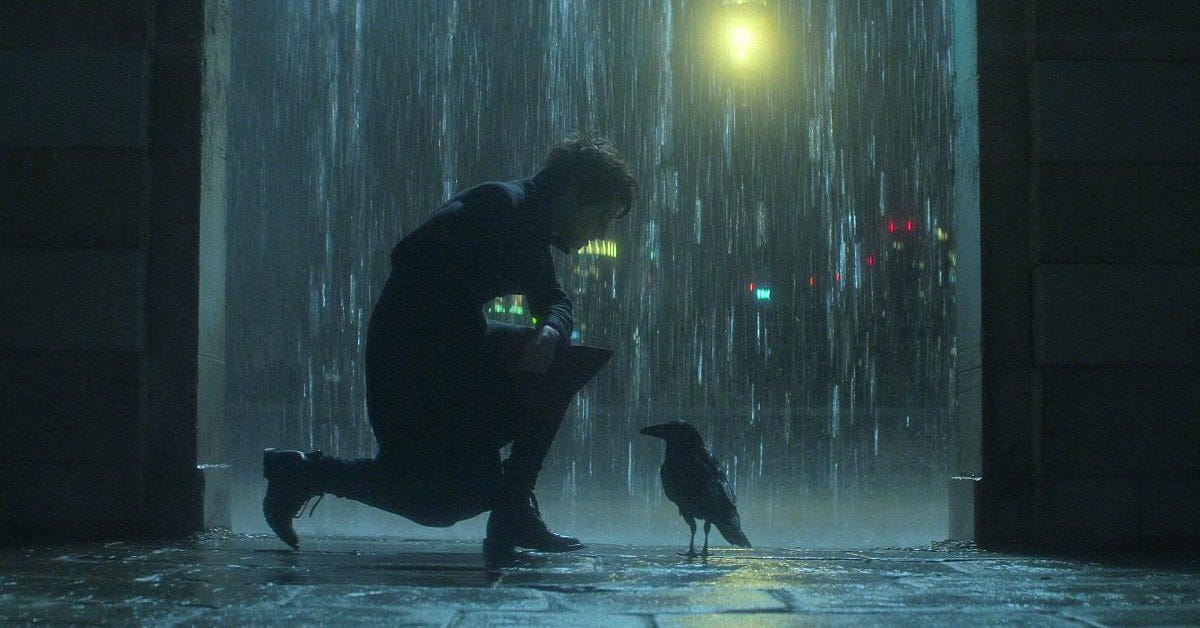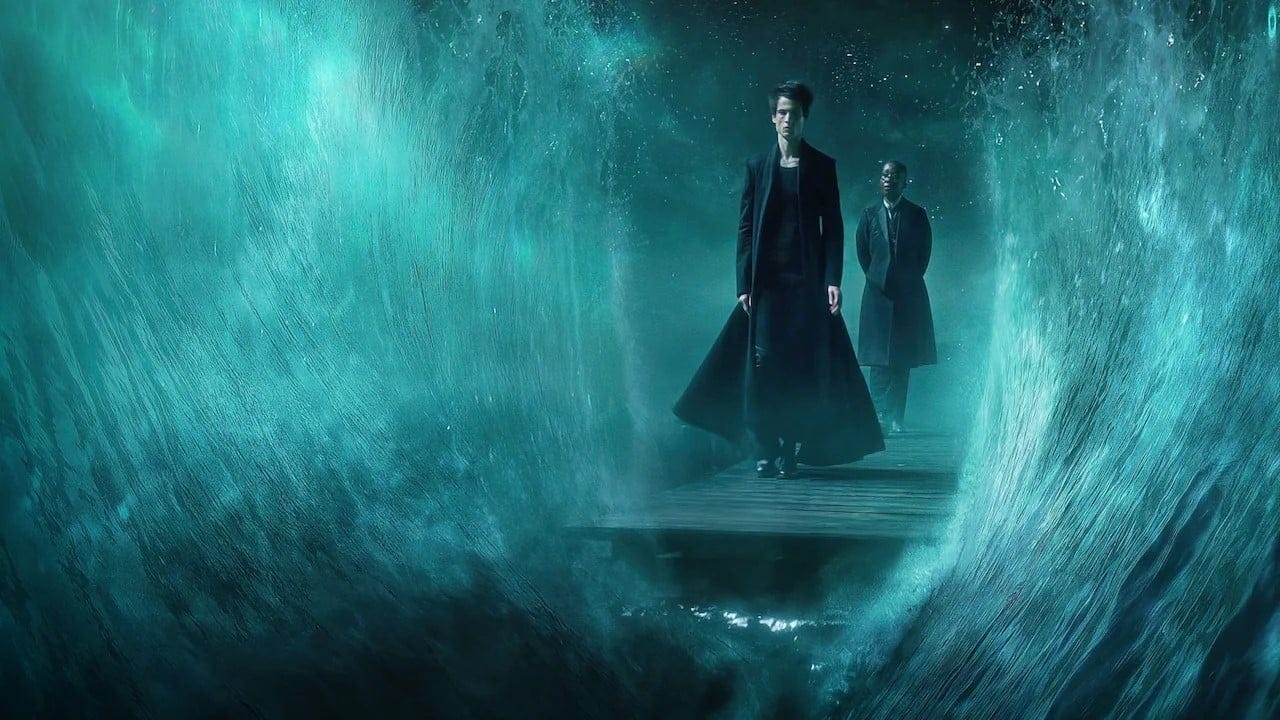Human consciousness, at its core, is shaped by the interplay between the ego and the super ego, creating a structure that governs our self-awareness, desires, and moral compass. The ego is the aspect of the psyche that deals with the conscious self. So our identity, our sense of "I" and "me" in relation to the external world. It acts as the manager of our daily life, making decisions based on fear based survival, validation, and external influences. The super ego, on the other hand, is the internalized voice of societal rules, moral guidelines, and expectations. It acts as a counterbalance to the ego, imposing limitations based on learned values and norms. Together, these components create a psychological framework that governs behavior, but it is also highly contingent on the individual's personal history, culture, and experiences.
However, consciousness is not a static state at all. Different states of consciousness correspond to different ontological realities. That become mythologised in the form of different mythological beings and realms. Even though biologically the person may appear the same, their mode of awareness, how they perceive themselves and the world, can radically shift. For example, in certain states, the ego and super ego may dominate, leading to a perception of self that is bound by fear, control, and judgment (e.g., the Kronian state). In other states, such as the Dionysian state, there may be a deep dissolution of the ego, leading to an expansive awareness where the sense of self merges with the world.
Kronian State (Control, Fear-based, Ego-dominant)
Percentage of Humanity: ~60-70%
At the most basic level of human consciousness is what we can call the Kronian state, named after Kronos, the primordial Greek god of control and the harvest. In this state, consciousness is primarily defined by fear, control, and survival instincts. Individuals operating in this state are often bound by anxiety about their safety, security, and the future, causing them to focus on controlling their environment and themselves in a rigid, predictable manner. In this state, people are highly identified with their external roles, identities, and societal expectations, often living in a world shaped by fear, scarcity, and competition.
This state of consciousness is tightly connected to the ego’s desire to control every aspect of life, attempting to keep everything in place to avoid the fear of weakness, vulnerability and the unknown. It is rooted in survival instincts, creating a rigid structure that seeks stability at the cost of creativity, flow, and spontaneity. In the Kronian state, humans operate out of defense and self-preservation, attempting to escape vulnerability by exerting control over their lives, beliefs, and even relationships. This often results in a fear-driven existence where individuals are unable to experience life as an unfolding process but instead see it as a series of threats to be neutralized. Only the confrontation with the shadow, the repressed inner weakness and darkness, can move one beyond the Kronian state.
Zeusian State (Order and Chaos, Dynamic Balance)
Percentage of Humanity: ~20-25%
The next stage of consciousness is the Zeusian state, named after the mighty Zeus, king of the Greek gods who embodied both the principles of order and chaos. In this state, people begin to confront the inherent chaos of life. They realize that the total control (as in the Kronian state) is impossible and that both order and disorder are necessary forces within the universe. They understand that life is dynamic, full of contrasts, and often unpredictable. While still bound by ego and super ego to some degree, there is a sense of agency and awareness that allows people to make choices that are less constrained by fear and more aligned with a deep, inner understanding of life's balance.
Zeus represents the dynamic tension between these two principles. Just as Zeus presided over both justice and chaos (thunder bolt as both justice and destruction), meting out punishment but also offering moments of grace, people in the Zeusian state learn to navigate the unpredictable nature of life. They embrace a much more balanced perspective, understanding that there are moments of control, but also moments when surrender and adaptation are necessary.
In this state, consciousness is characterized by a deeper understanding of the world’s complexity. People start to integrate contradictions and paradoxes, recognizing that life cannot simply be ordered or controlled. There is a continual dance between structure and chaos, and individuals in the Zeusian state learn to work with both forces, finding balance without rigid attachment to either. However, this state still revolves around the concept of duality. Order and chaos, justice and mercy. There is an attempt to harmonize the opposites, but the inner tension between them remains unresolved. The Zeusian state is one of constant struggle, trying to find the right balance between competing forces within the self and the world.
Dionysian State (Enlightenment, Wholeness, Unity)
Percentage of Humanity: ~5-10%
The Dionysian state represents a major dramatic shift in consciousness. Named after Dionysus, the Greek god of wine, ecstasy, and transformation, this state represents liberation from the constraints of order and control. In this state, consciousness enters a phase of ecstatic freedom, creativity, and spiritual wholeness. Dionysus embodies the principle of dissolution. The breaking down of boundaries, the embrace of chaos, and the surrendering of the self to the greater flow of the universe. When people enter the Dionysian state, they experience moments of deep connection to everything around them, letting go of the ego's need to control and instead embracing unity, spontaneity, and transformation.
In this state, there is no rigid separation between self and the world; the person is no longer defined by their ego, but instead experiences life as an interconnected whole. The Dionysian state is one of enlightenment, where the person perceives beyond the veil of duality and experiences unity with the cosmos. The chaos that was feared in the Zeusian state becomes a fertile ground for creativity, insight, and liberation. This is the inner emotional chaos, the chaos of trauma, and of the unknown itself.
However, the Dionysian state can also be overwhelming, as it requires a surrender of the ego, pushing people beyond the boundaries of the human condition. It is not a comfortable state for the unprepared, as it demands a profound letting go of control and a willingness to face the unknown. While this state brings enlightenment, it also brings the challenge of integrating that freedom into the structure of daily life.
The Nyktelioi State: Beyond Human Consciousness
Percentage of Humanity: ~1-2%
The final state of consciousness we explore is the Nyktelioi state. A state of awareness beyond even the Dionysian transcendence. The Nyktelioi, the children of Nyx, Greek goddess of the night and the abyss, represent the final dissolution of the ego and super ego, a state where all dualities, all distinctions between self and other, between subject and object, vanish entirely into the Self. In this state, there is no longer any attachment to human identity or ego. It is a state of pure awareness, free from the constraints of human conditioning (personal, familial, civilizational), a consciousness that exists outside of the conventional framework of reality.
Here, the person is not just united with the cosmos (the ego together with Self), but is the cosmos (the Self). They are not merely aware of life and death, but they are both life and death in an eternal, cyclical process. There is no longer a distinction between being and non-being. The Nyktelioi state is not about enlightenment in the traditional sense, where the self is no longer a separate entity but part of the infinite expanse of the cosmos. This state is beyond human understanding. It transcends all notions of good and evil, past and future, form and formlessness. It is a consciousness that has gone beyond the limits of human perception and thought.
This is when you are no longer bound to the dream of humanity. No longer bound by the patterns of the cosmos, neither on a personal or civilizational level. When we are asleep, then we see the patterns play out before us, the drama of life, yet when awake, we walk asleep through the world. Not knowing that what we see is not as real as we might think. That it is a waking dream, an illusion that clouds our perception of the world. Yet what we truly all are is Vishnu dreaming the cosmos. Which we project onto the material world, as if a blank canvas for our drama. Where all we do, all we are, our very fates, are shaped by this shared dream, and the unconscious patterns we chase in our projections. Yet a Nyktelioi can only see what truly is, what someone is, not the projections or illusions, as for them they do not exist. Just acceptance of reality. We understand how we project the cosmos (personal and collective unconscious), onto the world (universe). Being able to both realities at the same time. Knowing you are the dream, but also the dreamer, the actor that had played an act in the drama. Thus freeing one from all roles and acts. Holding both concepts and raw reality together.
There is no longer a separation between the dream and the dreamer. The person in the Nyktelioi state no longer sees the world through the filters of the ego or super ego, which have been shaped by personal and collective conditioning. There is no "return" to human consciousness because there is no human consciousness left to return to. It is the ultimate freedom from all clinging to conceptualization, allowing the person to perceive the world not as a projection of their mind but as it truly is, without any form of distortion, duality, or expectation. Free from cultural norms, societal expectations, family influences, and the psychological baggage that comes from our upbringing. Whilst holding the full awareness of the patterns, and concepts. It does not mean one is unable to create concepts, or use them or the patterns of the dream of the collective itself. As the capacity to think conceptually is not tied to the ego, but to our intellect, not the wounded fragmented “I” that people think they are.
In other words, the Nyktelioi can still use concepts, think about the world, and even function within it, but not as a separate, individual “self”. This is not a process of just chaotic dissolution, but bringing the unconscious into consciousness, feel deeply ones repressed emotions and feelings, and through this dissolve into the wholeness of the Self, in both a personal and later collective one. To become a fire born from the abyss.




